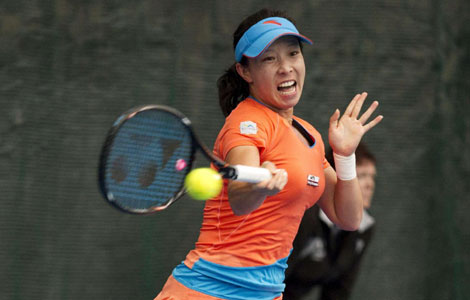Heart to heart via satellite
Updated: 2012-01-08 07:45
By Wang Hongyi (China Daily)
|
|||||||||||
The convention was organized by the Cardiovascular Society of Cross-Straits Medicine Exchange Association under the Ministry of Health, the Taiwan Society of Cardiovascular Interventions and the Shanghai No 10 People's Hospital affiliated to Tongji University.
The live telecast of the procedures was part of on-going efforts to enhance exchange and interaction among cardiologists from the mainland and Taiwan.
The treatment of cardiovascular disease has developed very well in Taiwan. But there are far more cases on the Chinese mainland in terms of numbers, and some of these are complicated and complex.
"This gives doctors on the Chinese mainland more opportunities to perform complicated medical procedures," said Xu Yawei, professor and director of the Department of Cardiology at the hospital. Xu also led the two operations on Saturday.
"This time, our counterparts in Taiwan can watch the procedures through the satellite telecast and we can share the information and technology."
During the forum from Jan 6 to 8, more than 20 cardiovascular intervention procedures carried out by the field's top experts were observed via satellite by the Taiwanese surgeons gathered for their annual meeting at the Taipei International Convention Center.
Xu said most of the operations were complicated cardiovascular conditions rarely seen in Taiwan.
Through the satellite signals, more than 2,000 medical experts in the field of cardiovascular disease from the Formosan Medical Association watched the operations performed by their counterparts in Shanghai.
As the operations were performed, the experts had the chance to review and discuss the cases, including key difficulties of the procedures.
A new technique, fractional flow reserve (FFR) used for coronary intervention in patients, was also demonstrated on the spot.
This treatment is yet to be carried out in Taiwan.
While live video broadcast has been widely used in medical academic exchange on the Chinese mainland, it is still not often seen between the Chinese mainland and Taiwan, said Yu Fei, a medical staff at the convention.
"This is an extremely useful way to develop better cross-Straits cooperation in the field of cardiovascular treatment, and for more academic exchange," Yu said.
Hot Topics
Kim Jong-il, Mengniu, train crash probe, Vaclav Havel, New Year, coast guard death, Internet security, Mekong River, Strait of Hormuz, economic work conference
Editor's Picks

|

|

|

|

|

|







